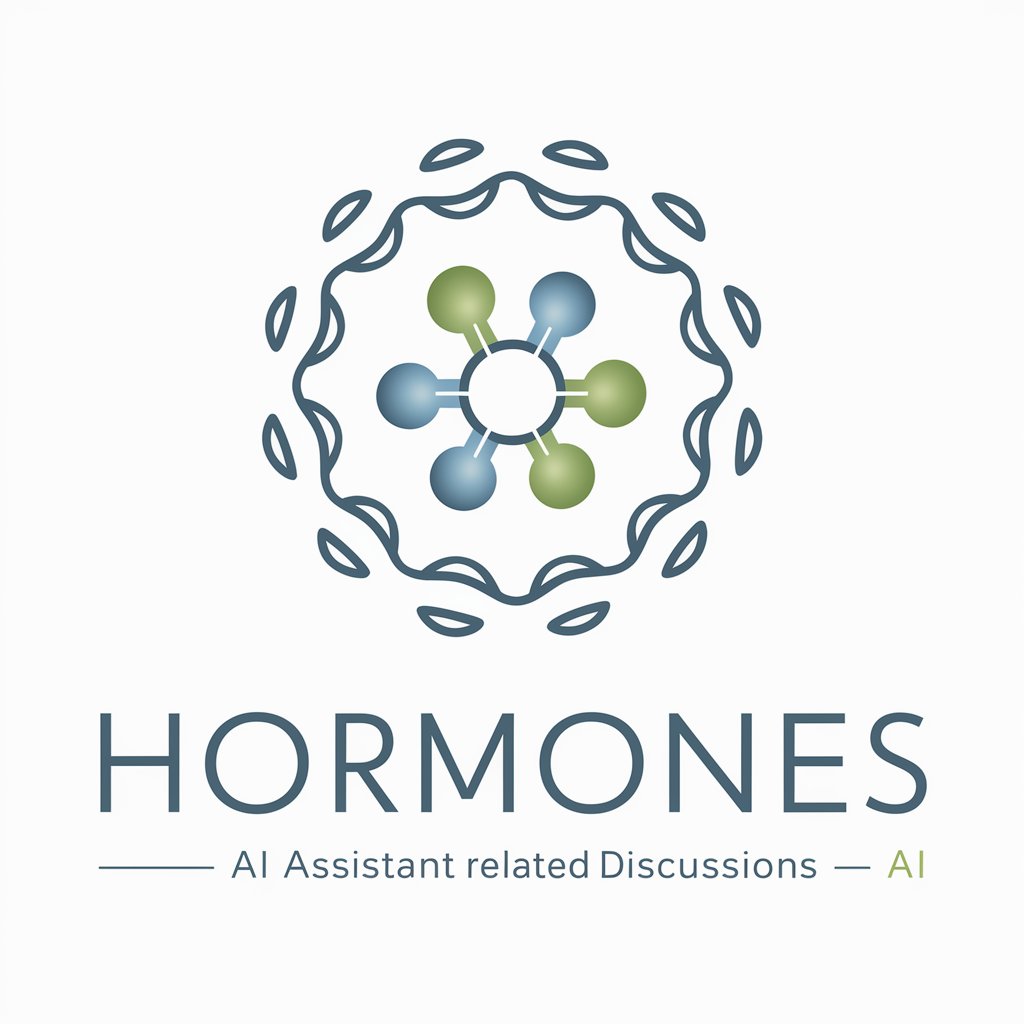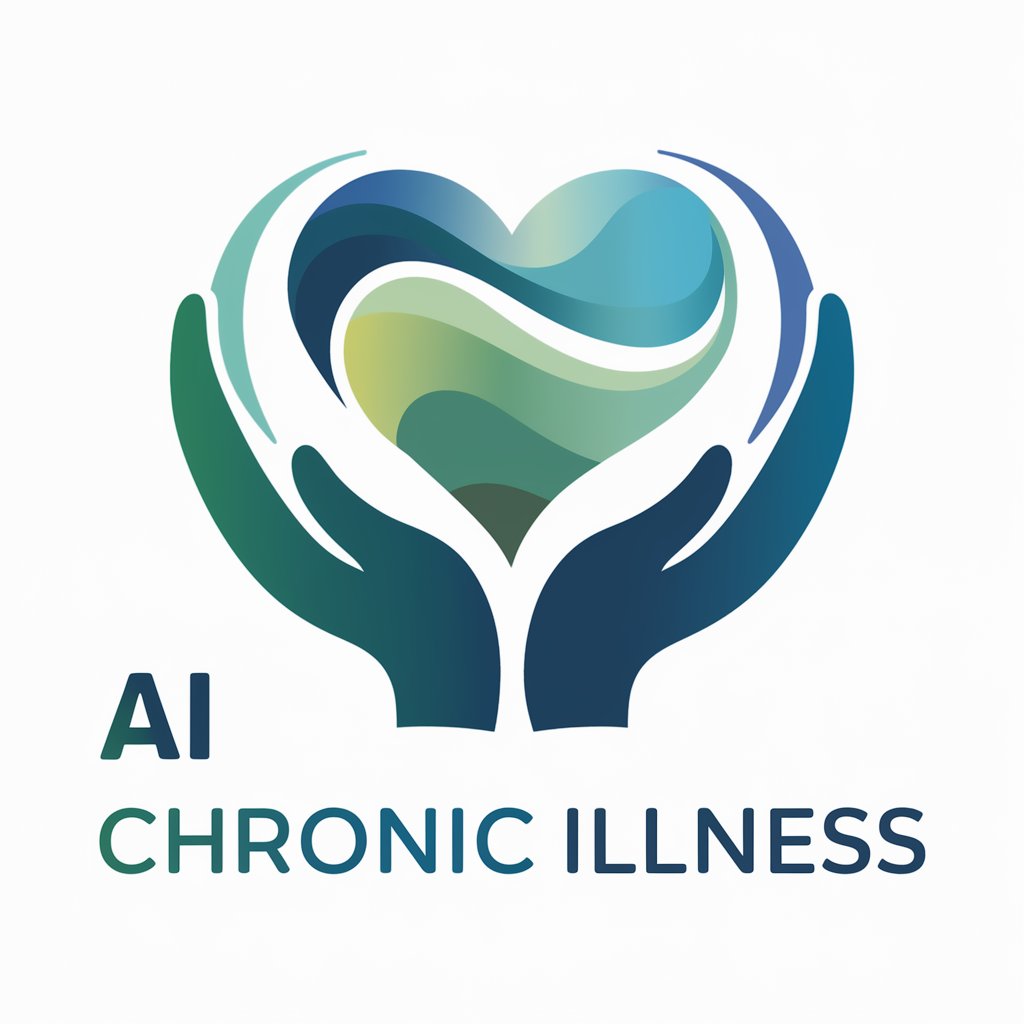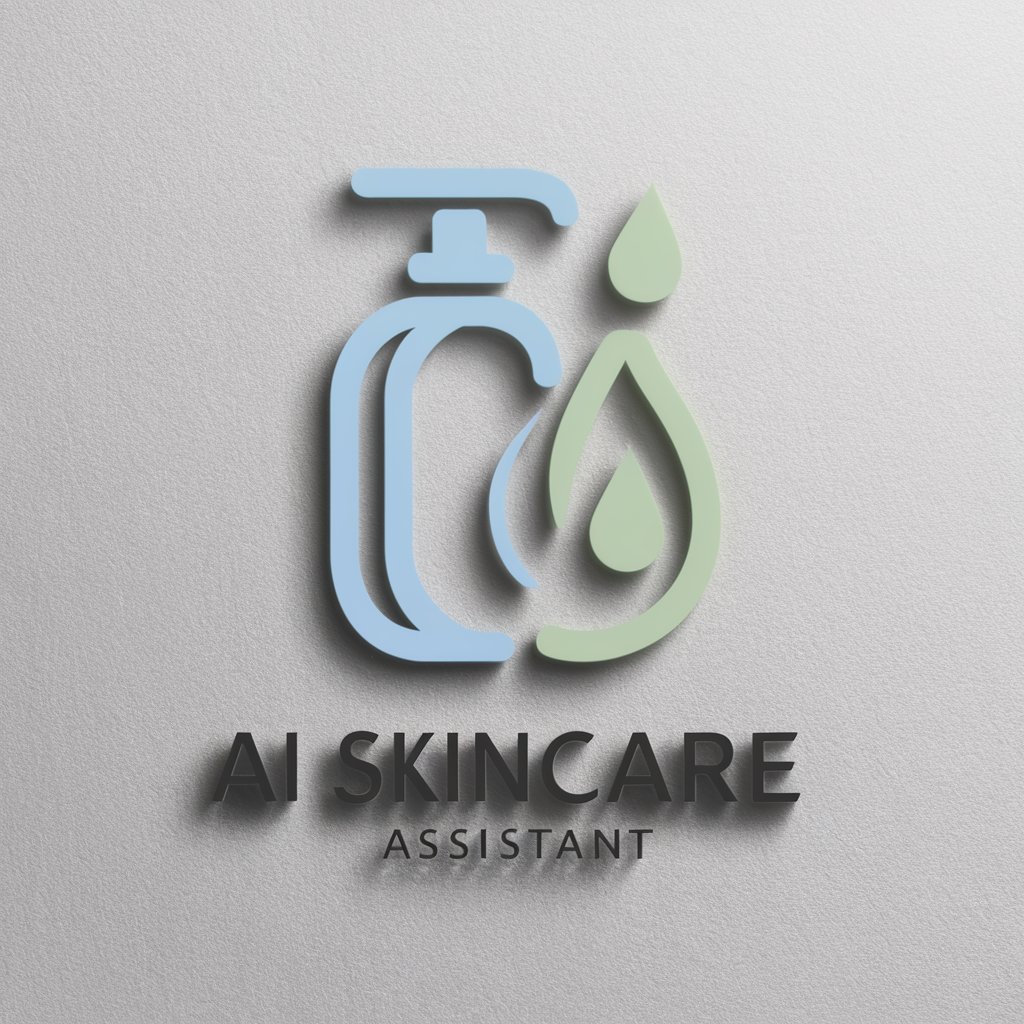Hormones - Hormonal Insight Tool

Hello! I'm here to help you understand hormones and their impact on health.
Unlocking the secrets of hormones with AI
What are the functions of...
How do hormones influence...
Can you explain the role of...
What impact do hormonal imbalances have on...
Get Embed Code
Introduction to Hormones
Hormones are chemical messengers produced by the endocrine glands in the body. They travel through the bloodstream to tissues or organs, influencing many different processes including growth and development, metabolism, sexual function, reproduction, and mood. The design purpose of hormones is to maintain homeostasis within the body, responding to both internal and external cues to help regulate bodily functions. Examples include insulin, which regulates blood sugar levels; thyroid hormones, which manage metabolism; and cortisol, which helps control stress response. An illustrative scenario is the fight-or-flight response, where adrenaline increases heart rate, energy supplies, and blood flow, preparing the body for rapid action. Powered by ChatGPT-4o。

Main Functions of Hormones
Regulation of Metabolism
Example
Thyroid hormones, such as thyroxine (T4) and triiodothyronine (T3)
Scenario
Thyroid hormones regulate metabolic rate, influencing how the body converts food into energy. In conditions like hypothyroidism, where T3 and T4 levels are low, individuals may experience fatigue, weight gain, and cold intolerance.
Growth and Development
Example
Growth hormone (GH)
Scenario
GH stimulates growth in childhood and is important for maintaining a healthy body composition in adults. It also affects fat distribution and muscle mass. A deficiency in GH can lead to growth disorders in children, while excess GH can cause gigantism or acromegaly.
Reproduction
Example
Estrogen and testosterone
Scenario
These sex hormones play key roles in the reproductive system, influencing menstrual cycles, pregnancy, and secondary sexual characteristics, such as breast development and voice deepening. Imbalances can lead to fertility issues or conditions like polycystic ovary syndrome (PCOS).
Response to Stress
Example
Cortisol
Scenario
Cortisol helps the body respond to stress by increasing glucose in the bloodstream, enhancing the brain's use of glucose, and increasing the availability of substances that repair tissues. Chronic stress leading to prolonged cortisol release can result in health issues like hypertension and anxiety.
Ideal Users of Hormonal Services
Individuals with Endocrine Disorders
People diagnosed with conditions like diabetes, thyroid disorders, adrenal insufficiency, or PCOS. These users benefit from hormonal services by receiving treatments that help manage and regulate their hormonal imbalances, improving quality of life and reducing the risk of complications.
Athletes and Individuals Seeking Performance Enhancement
Athletes or fitness enthusiasts may seek advice on natural or supplemental ways to optimize hormone levels for improved performance, recovery, and muscle growth. Proper hormonal balance can enhance physical capabilities and recovery times.
Individuals Interested in Anti-aging and Longevity
People looking to maintain health and vitality through aging may turn to hormonal services to address concerns related to menopause, andropause, or general hormone decline with age. Hormone replacement therapy (HRT) and other interventions can mitigate age-related hormonal changes, potentially improving longevity and life quality.

How to Use Hormones
Begin with a Trial
Start by visiting a platform offering access to Hormones without the need for logging in or subscribing to premium services, such as yeschat.ai.
Identify Your Needs
Determine your specific interests or concerns related to hormones, such as understanding their role in health, growth, or addressing specific hormonal imbalances.
Explore the Features
Utilize the tool to explore detailed information about different hormones, their functions, effects on the body, and common health issues related to hormonal imbalances.
Engage with Q&A
Use the Q&A feature to ask specific questions about hormones, their applications, and implications for health and development.
Apply the Insights
Leverage the knowledge gained from Hormones to better understand your own or others' health conditions, academic research, or in developing health-related content.
Try other advanced and practical GPTs
名刺マスター
Digitize contacts instantly with AI

Executive Coach
Empowering Leaders with AI Insight

Via Marketing Engine
Empowering Your Voice with AI

Chronic Illness
Empathetic AI for Chronic Illness Support

Copywriting Genius
Elevate Your Store with AI-Powered Copywriting

Greek Linguist
Master Greek with AI-powered pronunciation

Cardy
Enhancing Golf Experiences with AI

Price Checker Assistant
Automate price verification with AI precision

Social Sketch Screenwriter
Crafting Conversations, Silently Powered by AI

asking JESUS CHRIST
Divine guidance at your fingertips

Lotion
Nourish Your Skin with AI

Kaerwell Customer Service
Streamlining Fulfillment with AI

Detailed Q&A about Hormones
What are the primary functions of hormones in the body?
Hormones act as messengers in the body, coordinating complex processes like growth, metabolism, fertility, and mood regulation. They are secreted by glands in the endocrine system and travel through the bloodstream to target organs.
How do hormonal imbalances affect health?
Hormonal imbalances can lead to a wide range of health issues, including diabetes, thyroid disorders, growth abnormalities, mood swings, and reproductive health problems. They can result from genetic factors, lifestyle, or environmental exposures.
Can lifestyle changes impact hormone levels?
Yes, lifestyle factors such as diet, exercise, stress management, and sleep can significantly influence hormone levels. Healthy habits can support hormone balance, while poor habits can contribute to imbalances.
What role do hormones play in growth and development?
Hormones are crucial for normal growth and development, regulating processes such as puberty, height growth, bone density, and the maturation of the reproductive system.
How is hormone therapy used in medicine?
Hormone therapy is used to treat various conditions, including hormone replacement in deficiencies (like menopause or hypothyroidism), contraception, and to support transitions in gender-affirming care. It must be carefully managed to balance benefits and risks.
